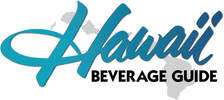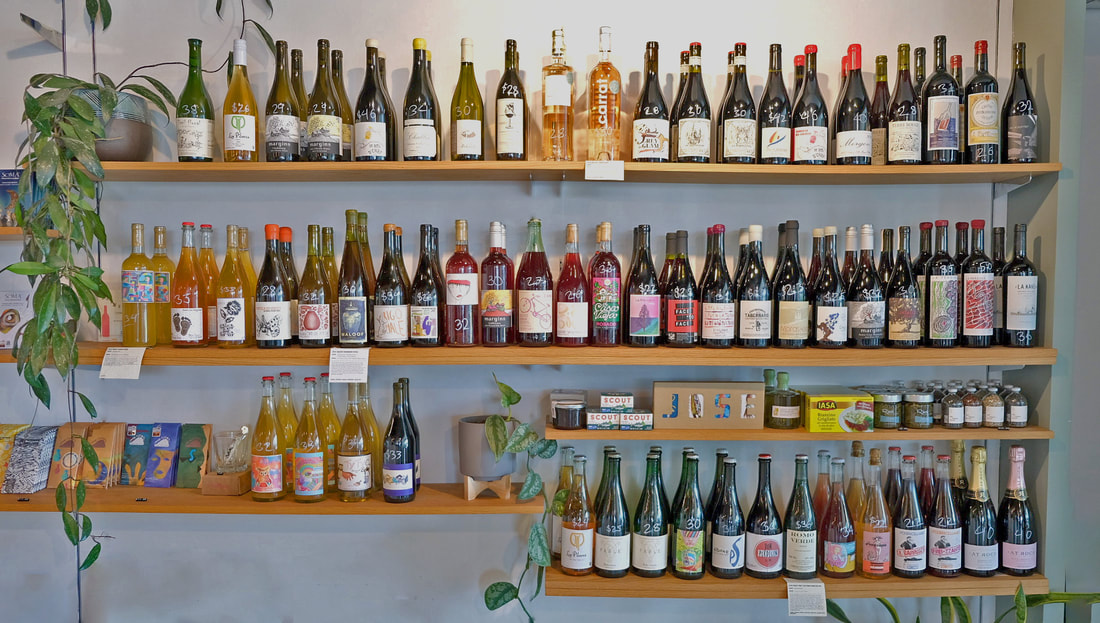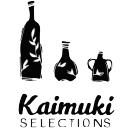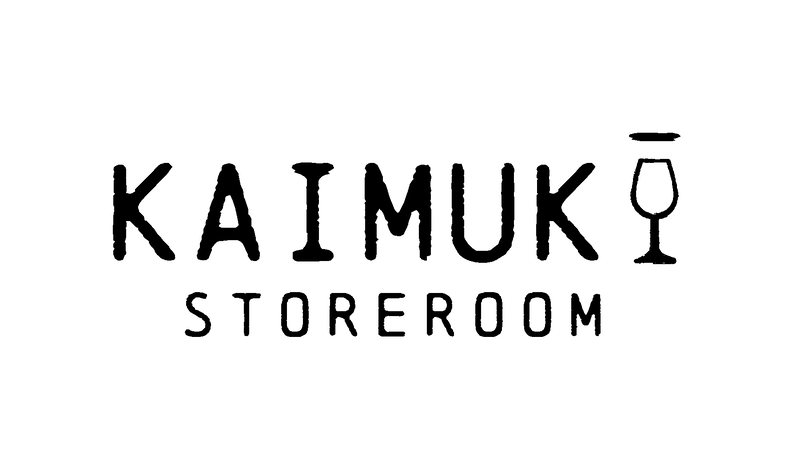- Subscribe
- Digital Edition
-
Beverage Guide
- Flavor and Cocktail Construction >
- Production Fundamentals >
- Non-Alcoholic Beverages >
-
Beer
>
- Cider >
- Sake
-
Spirits
>
-
Wine
>
- Kamaʻāina Wine Makers >
-
Winemaking
>
- A Guide to: High Sugar Residual Wines
- A Guide to: Post Fermentation Flavor Adjustments
- A Guide to: Post Fermentation Process: Stabilization
- A Guide to: Wine Prefermentation Practices
- A Guide to: Wine Microbes
- A Guide to: Wine Alcoholic Fermentation Physical Environment
- A Guide to: Wine Fermentation Chemical Environment
- A Guide to: Wine Bottling
- A Guide to: Wine Faults
- A Guide to: Wine Polyphenols
- A Guide to: Wine Aroma Compounds: Pt 1
- A Guide to: Wine Aroma Compounds: Pt 2
- A Guide to Viticulture
- Red and White Grape Aroma Compounds
- Wine Styles >
- Business Strategy
- News and Events
- About
- Production Fundamentals
- Flower Aroma Compounds
|
Kaimuki Selections
The Curb Kaimuki/Kaimuki Storeroom
People
The Business
Founding StoryThe Curb Kaimuki The story of Kaimuki Distributors starts with Devin Uehara-Tilton’s foray into the coffee industry as a barista during college for The Curb under its prior ownership, and continued through multiple expansions on the UH Manoa campus which eventually grew to a brick and mortar location at UH Manoa’s Paradise Palms Café and Food Court. Eventually it expanded other sites including the University of Hawaii’s Sinclair Library, 143 Hekili St #120 in Kailua which opened in 2016 and 3538 Waialae Ave #101, Honolulu. “Some of our long-time regulars will remember the hole in the wall up the street where there was no AC, the shop would flood every other day, and that fun experience,” recanted Ross. At the end of 2017 however, for various reasons, there was a chance that the company would be shut down. As Ross explains it, “By then, all of the employees had become our really good friends, and customers had become like family. It would have been a shame to see that community just disappear. And while it may have replicated itself somewhere else with the same people and the same coffee, I think our long-time regulars would agree that our community is irreplaceable. It wouldn't be the same.” While it was not financially easy to step in, Devin and Ross were able to traverse the situation partially by becoming architects, designers, plumbers, electricians and construction managers to complete the Kaimuki location’s build-out. “I never planned to be a coffee shop owner, and I don't know if Devin ever planned to be a barista for the rest of his life or even a coffee shop owner, but adversity breeds opportunity, and here we are today,” Ross added. The doors eventually opened on January 13, 2018. “Our soft opening was the day of the false missile alert. We did a free bottled cold brew and a ‘come hang out and check out the new space’. Then we all got the alert on our phones at 8:00 o'clock in the morning and were all just literally sitting out on the curb, looking up at the sky for a missile that luckily never came, and contemplating what felt like our final moments. . . I'm almost tearing up thinking about it . . . But going through that experience with those people is part of what makes us who we are today.” The location was a success, and was quickly outgrown. “We thought from the location up the street (3538 Waialae Ave) that the new spot with 3 tables that could sit three people each, and two seats at the bar was going to have so much space, and then, from day one, the line was out the door. We very quickly outgrew that space.” Ross said. Though the pandemic impacted their business, as a portion of the customer base were tourists, the local communities support warranted the expansion of The Curb. Fortunately the adjacent space, which Ross has had an eye on, was made available by the landlord Finance Factors, after two years sitting vacant. Ross explained, “It was a Chinese restaurant, then Young Scale Company, and then an AT&T store which closed their doors before we even moved in next door. We had discussions with our landlord about moving into the space and were waiting in the background. While other people were interested, it was too difficult to put in ventilation for significant cooking equipment. Finally our landlord, Finance Factors, who has an informal, unspoken connection between coffee shops in Hawaii as their buildings have coffee shops like Morning Glass in Manoa, and formerly Brue Bar at the downtown location, gave us an opportunity. It wouldn't have been possible without our customers, and I’m happy and proud about the fact that during the pandemic we didn't have to ask for any kind of rent relief, and we were able to pay full rent the whole time.” The doors opened in April of 2021 and upon moving Devin and Ross thought they would have ample space as it had, as Ross put it, “ten times the amount of seating and the times the amount of storage”. However, “from day one it's felt like it's not been enough,” he added. Kaimuki Selections and Kaimuki Storeroom Devin and Ross’s introduction to wine started out in what Ross deems “a rather unsophisticated manner”. He explains, “I kind of joke that it started as a personal endeavor for personal consumption and trying to find what I want to drink and what I like to drink. The fact that we now get to share it with other people is just an added bonus.” Intentionality is a significant part of both The Curb’s coffee program and now the Uehara-Tiltons’ approach to wine, and an idea that originated with The Curb’s former ownership. “A big part of what we've done in coffee is to try and understand for ourselves and for our customers a little bit more behind the product that we're drinking. For me and wine, it started out that way as well. I think it is an idea that's a lot more common in our generation and younger generations. We want to be more intentional in our consumerism. We want to know where the product is coming from and the people who are making it. And then you start going down the rabbit hole, there's so much out there, so much to learn, and it's interesting and it's fun,” said Ross. The development of the wine program starts with an on-premise wine bar to utilize the pre-existing space of The Curb. Ross explained, “I drink coffee at five in the afternoon, but not many other people do, and it would be a shame to have this great anchor corner location that closes at 1:00 everyday. While traveling, we saw what are colloquially called Cinderella Cafes– coffee bars by day and wine by night – so that idea prompted us to look into the idea of doing an on-premise program. Going back to that intentionality, we did not want to be like any other bar or even any other wine bar. That led us to the idea of doing low-intervention or natural wine because it is a category that, I think conceptually because of the intentionality, is similar to what we're trying to do in coffee. Both are beverages produced from fruits, and both involve a similar supply chain–growing, harvesting, processing, and delivery to the consumer. And then second, because the Hawaii market and Hawaii consumers tend to lag, three to five years behind the markets and the consumers and interest on the continent, there is an opportunity to get in at the beginning and make sure things are done in what we think is the right way, and to shape the natural wine industry in Hawaii.” The idea for Kaimuki Distributors’ wholesale license, under its trade name Kaimuki Selections, arose when the products that Devin and Ross wanted to serve on premise were not available through the existing distribution channels. Ross explained, “With these ideals or these philosophies in the background, we found out that it's not easy to get the product. We would travel, or friends from Hawaii who had moved away but upon return would come back with a suitcase full of all this amazing wine that just is not on the shelf here.” Kaimuki Distributors’ retail license, under the trade name Kaimuki Storeroom, was then an extension of both the on-premise and wholesale licenses as the Uehara-Tiltons wanted to share the experience of drinking the unique wines that Kaimuki Distributors is able to procure, but in locations that were not necessarily at the wine bar, and not just on a Friday, Saturday or Sunday night. Ross noted, “I drink wine almost every day, and so the opportunity to share that experience with other people and to bring that home or to parties or gatherings lead us to also seek a retail license. ” “There's also nothing better than just sitting on beach-front private property drinking a pet-nat (as it is technically not legal to drink on the beach, and being an attorney, Ross would never do anything illegal), and you can't experience that in many other places, right?” “We still have a respect for the science and the historical winemakers and the industry pioneers before us. But these days it doesn’t have to be 100% serious 100% of the time,” Ross noted. Wine Selection Initially, wine procurement was ad hoc in that producers were found by friends sending back bottles or taking pictures of bottles, or when traveling the Uehara-Tiltons would taste and then become familiar with the names of the producers. It was a lot of cold calls and emails to introduce ourselves and say, hey, wouldn’t it be great to get a few of your wines to Hawaii? For non-domestic wine, they became familiar with the importers and found inspiration from mainland distributors and established on and off-premise accounts then figured out how to get the same or similar products to Hawaii. Ross noted, “It is an unsophisticated way of going about it, but I think it comes from a place that tries to break down the barrier where you don’t have to be a certified or master sommelier to become interested in this industry.” “Hawaii is a very untapped market for natural and low-intervention wine. Some of the importers and distributors and producers that I've spoken to said Hawaii's too hard from a logistical perspective and that it is not a big enough market to justify the investment in setting up supply channels. And while our wine here on the shelf isn't going to be the same price that it's going to be in a shop in California or in New York, neither is a gallon of milk. Part of the challenge is getting people used to the idea that you're paying for a unique product, and I think consumers are ultimately okay with that. You wouldn’t bat an eye paying more than $12 a glass in just about any restaurant. When you realize that there are 4 or 5 glasses in a bottle, and that works out to $48 to $60 a bottle, paying $30 or $40 for a bottle on the retail shelf feels like a deal! Of course in the restaurant you’re not only paying for the wine, you’re paying for the ambiance and the people who are serving the wine to you and a bunch of other things, and that shouldn’t be discounted. It’s not that restaurants are overcharging, because they are not. It’s that you can and should experience the same kind of enjoyment on a daily basis. I feel like producers and importers, however, haven't really done the math to understand that it’s financially possible to be in Hawaii. A lot of the companies we work with are also very small scale, so if they're only producing a few barrels a year, are they going to sell to California or Hawaii? From a purely financial business perspective, the answer seems clear,” he added, “but I’m trying to change that perception”. “Recently I think people have seen that it's possible, and so within the past two months we've had probably ten different producers and importers reaching out to us on social media saying, hey, you know I saw such and such a wine on your Instagram, I know they're coming from California, like, how is it getting to Hawaii and can we do the same thing?,” he added. So it’s starting to work. Consumer DemographicsCommon categories of customers include:
“It's interesting that we've got this intersection of visitors who are looking for a new experience, people who already are in the industry looking for an experience that they already have in their home state or country, and an interesting segment of people who are in specialty coffee and are seeking out that same or similar educational experience in wine that they would be with coffee” said Ross. But my favorite are the people who started out as, ‘I’m not a big wine drinker,’ but are now here every weekend asking what’s new on the shelf. We’re probably never going to be able to convert the customers who come in asking for a Napa Cab, but you’d be surprised how many beer and cocktail drinkers become open to our style of wine after their first few glasses, and especially the younger generations. We have to check a lot of IDs.” Sales implementation help from Kaimuki Distributors Beyond being a freight forwarder, Kaimuki Distributors can assist those interested in implementing a natural wine program, by helping to break down the learning barrier. Ross explains, “You can’t really implement a natural wine program without having access to the product and being able to taste it. So sitting down with bar managers or chefs and letting them taste often is something that they can't really get from other distributors—it sometimes feels like an uncomfortable push just to sell a product, and maybe you feel bad if you don’t end up buying anything. While, I’m not trained in wine and our knowledge is only the tip of the iceberg, I'm happy to bring a cooler and a couple of glasses and sit down and talk about it and and do that multiple times until we can refine the list or refine the program until it gets to a place where it works. Or, you can just come by the shop on a weekend afternoon with a few friends and we can start opening bottles and learn together. I'm excited to work with as many people as we can as long as the ideas fit philosophically, and while there is limited time and limited space, we're happy to help in any way we can.” It’s a business, but currently the focus is on “getting good wine to good people.” “Our profit margins are not what they would normally be for a conventional distributor, and to give an example, we shipped a few cases to one of the neighbor islands recently basically at cost. Hopefully, eventually, it will grow into something different, but at this early stage of market penetration, I'm happy to break even. We’ve found a way to do it economically where you don’t have to buy a whole pallet of the same wine, or even a whole case. We can start with just a few bottles and see how it goes. That takes away some of the financial pressure and makes it easier for retailers and restaurants to be adventurous.” Kaimuki Selections is continuously expanding its portfolio, adding new importers and domestic producers. "I'm happy to try to facilitate bringing a particular producer to Hawaii if there are specific wines that a buyer is interested in procuring," added Ross. SuppliersInternational
Domestic California
Oregon
|
MENU
|
HOME
|
SUBSCRIBE |
DIGITAL
|
BEVERAGE
|
NEws and
|
ABOUT |
CONTACT |
©2022 Hawaii Beverage Guide
Terms & Conditions
Terms & Conditions
- Subscribe
- Digital Edition
-
Beverage Guide
- Flavor and Cocktail Construction >
- Production Fundamentals >
- Non-Alcoholic Beverages >
-
Beer
>
- Cider >
- Sake
-
Spirits
>
-
Wine
>
- Kamaʻāina Wine Makers >
-
Winemaking
>
- A Guide to: High Sugar Residual Wines
- A Guide to: Post Fermentation Flavor Adjustments
- A Guide to: Post Fermentation Process: Stabilization
- A Guide to: Wine Prefermentation Practices
- A Guide to: Wine Microbes
- A Guide to: Wine Alcoholic Fermentation Physical Environment
- A Guide to: Wine Fermentation Chemical Environment
- A Guide to: Wine Bottling
- A Guide to: Wine Faults
- A Guide to: Wine Polyphenols
- A Guide to: Wine Aroma Compounds: Pt 1
- A Guide to: Wine Aroma Compounds: Pt 2
- A Guide to Viticulture
- Red and White Grape Aroma Compounds
- Wine Styles >
- Business Strategy
- News and Events
- About
- Production Fundamentals
- Flower Aroma Compounds





 RSS Feed
RSS Feed